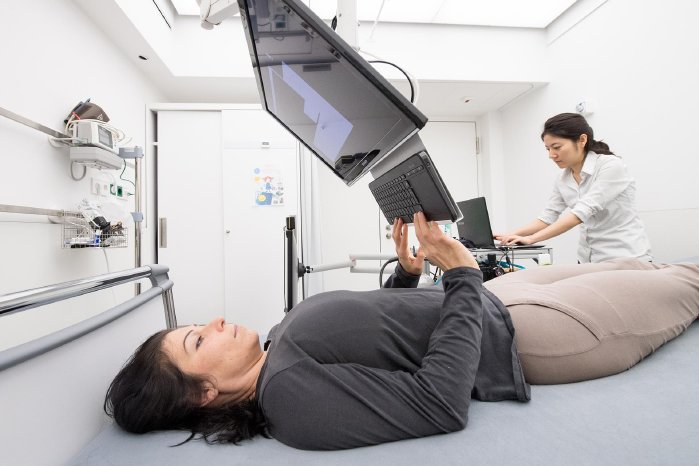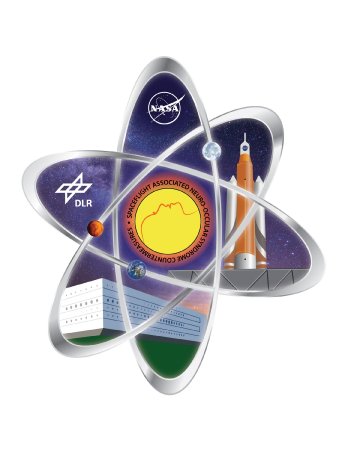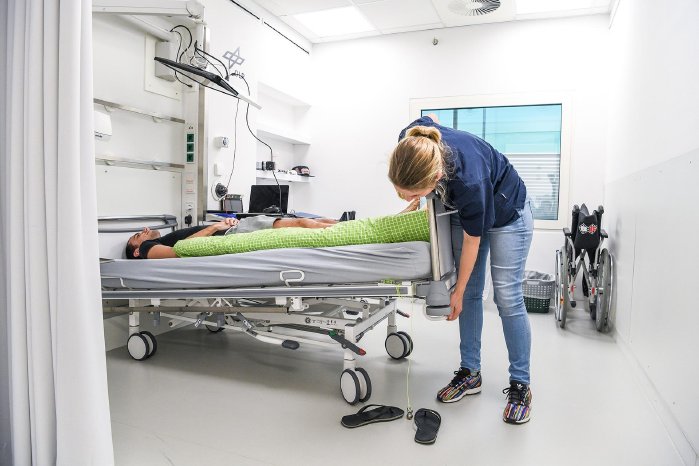Specifically developed for dynamic vessel analysis, the DVA 3.0 is a worldwide unique system, which enables the examination of both the function and regulation of vessels in a non-invasive manner. With a simple and painless look into the eye, the retinal vessels are analysed and important information about the quality of blood circulation as well as possible functional disorders and changes are collected.
Space missions are time-consuming – looking at research and preparation – expensive and dangerous for astronauts and their health. In addition to the high psychological strain, the elimination of gravity can lead to a number of physiological changes. For example, there may be a loss of muscle and bone mass, a shift of bodily fluids towards the head ("puffy head, bird-legs" syndrome), limitations of the cardiovascular system, but also changes in the eye and the body’s microcirculation may occur.
In order to make such effects visible and to prevent possible complications, so-called bed rest studies are carried out to simulate a stay in space. During these studies, volunteers spend several weeks lying in bed, which is slightly tilted backwards so that the legs of the test person are positioned higher than their head. In this position, they must eat, sleep, exercise, read and even shower, which will cause their bodies to adapt as if they were in space. The US and German scientists expect important findings for future missions in which astronauts have to survive long periods of time restricted in movement, for example due to staying in a spacecraft. Understanding the effects of living in space as well as related changes in the human body is vital for the preparation of future projects such as sending humans to Mars.




